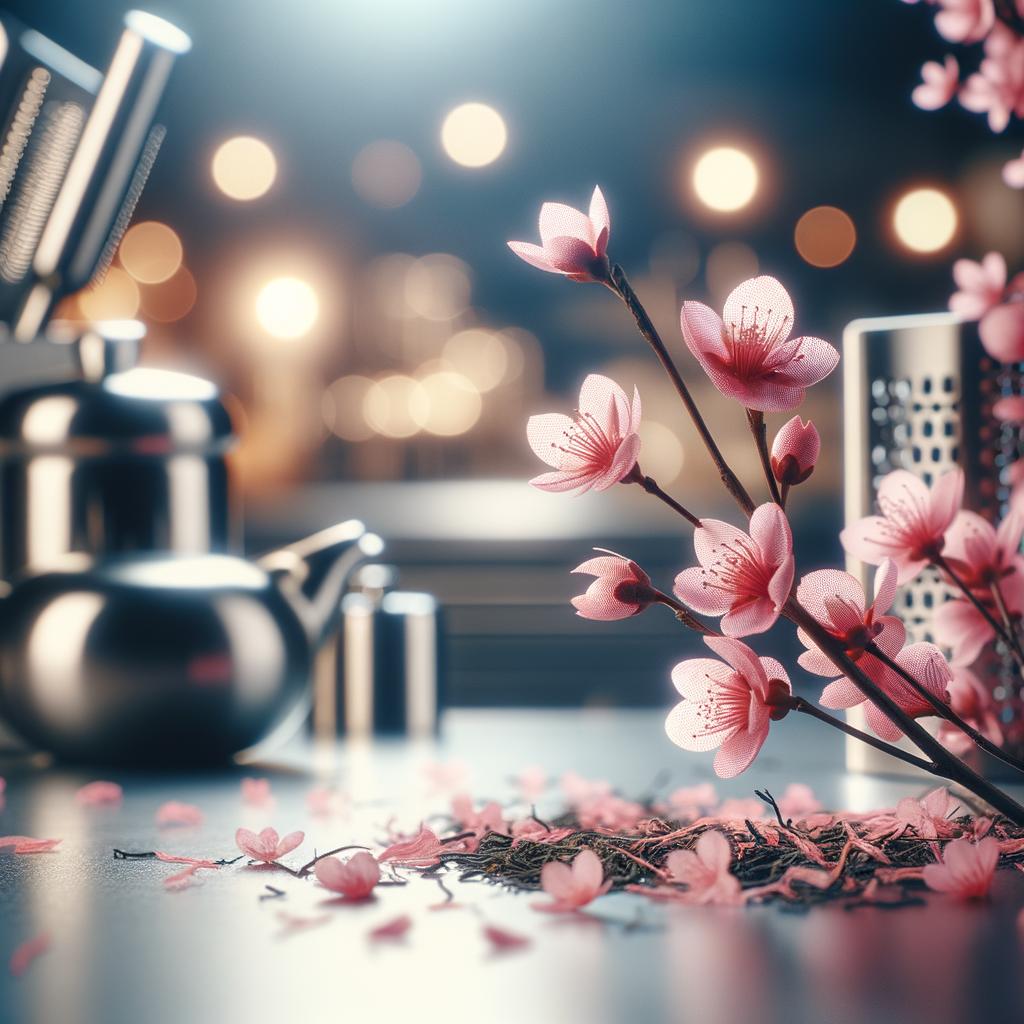Sakura Tea Leaves

Sakura Tea Leaves
Description
Sakura Tea Leaves, also known as Cherry Blossom Tea Leaves, are a divine ingredient hailing from the Land of the Rising Sun, Japan. These leaves are visually striking, with a delicate pink hue and intricate veining that mirrors the beauty of cherry blossom trees in full bloom. They possess a unique, slightly chewy texture and an ethereal flavor profile that dances between sweet and sour, with a slight salty undertone. The aroma is equally enchanting, akin to a gentle spring breeze wafting through a cherry blossom grove. What sets Sakura Tea Leaves apart is their ability to transform, upon brewing, into a pale pink beverage with a delicate floral scent, making every sip a sensory journey.
Primary Uses
In the culinary world, Sakura Tea Leaves are primarily used to brew a delightful tea, often served during special occasions or to honor guests in Japan. The tea is a key component in Hanami, the traditional Japanese custom of enjoying the transient beauty of flowers. The leaves can also be used to infuse desserts like mochi and cakes with their subtle floral notes. Beyond its culinary uses, Sakura Tea also holds significant cultural importance in Japan, symbolizing the fleeting nature of life due to the short bloom time of the cherry blossoms.
History
The history of Sakura Tea Leaves is deeply intertwined with Japanese culture, dating back to the Heian period (794-1185). The practice of drinking Sakura Tea began as a royal tradition, with the upper echelons of society savoring this exquisite beverage during cherry blossom viewing parties. Over time, the tradition trickled down to the masses, becoming an integral part of Japanese tea ceremonies. There's a romantic tale that the first Sakura Tea was brewed by a lovesick samurai, who hoped the blossoms' beauty could be captured in a drink to win his beloved's heart.
Nutritional Information
Sakura Tea Leaves are not just about their enchanting flavor and cultural significance; they also pack a nutritional punch. They are rich in antioxidants, particularly flavonoids, which have been linked to a reduced risk of heart disease and certain types of cancer. They also contain essential minerals like potassium and magnesium. While Sakura Tea is lower in caffeine than its green or black counterparts, it offers a calming effect, making it a healthier alternative for those sensitive to caffeine. Compared to other floral teas like chamomile or hibiscus, Sakura Tea offers a unique blend of sweet and sour flavors, with an equally impressive array of health benefits.

